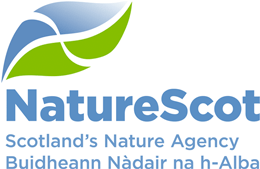08 December, 2016
SNH and RSPB Scotland: public meeting set up by partnership aims to tackle stoats’ impact on Orkney
Work to tackle the threat posed by non-native stoats to Orkney’s incredible wildlife has been given a significant boost as Scottish Natural Heritage (SNH) and RSPB Scotland prepare to submit a major funding bid.
The two organisations will seek other partners’ and local community views on the project proposals before submission.
Local people are encouraged to attend a public meeting being held by the two organisations on Tuesday 13 December from 1-3.30pm at the St Magnus Centre in Kirkwall.
The event will provide an opportunity to hear more about what’s been happening so far and contribute to the future development of this project. A stoat eradication expert from New Zealand will also be present at the meeting. This expert has been commissioned by RSPB Scotland to develop Biosecurity plans to help protect the islands that are currently stoat-free and to assess methodologies for eradication or control.
This builds on the expertise within SNH and RSPB already in existence from other eradication projects, such as in the Outer Hebrides. Stoat control work is expected to start on a larger scale next year, if funding is approved.
Nick Halfhide, SNH’s director of operations, said: “We are looking to engage and harness the support of all sectors on Orkney, from farmers, tourism businesses, and wildlife enthusiasts and of course anyone who appreciates the value of the fantastic native wildlife we have here.
“The benefits of this project are wide-ranging, from protecting and enhancing Orkney’s native wildlife, to sustaining and growing Orkney’s thriving wildlife tourism industry.”
Since they were first recorded in 2010, stoats have spread across the mainland and the connected isles. They are skilled hunters and their presence could have a devastating effect on Orkney’s rich and diverse wildlife.
Orkney has several sites of European importance for ground-nesting birds. These Special Protection Areas (SPAs) include species such as red-throated divers, and Arctic terns which are likely to be negatively affected unless the stoat population can be controlled.
Other wildlife at risk includes the Orkney vole – a species unique to the islands – the endangered hen harrier and short-eared owl, curlew, lapwing, corncrake and seabirds including puffins and kittiwakes. Stoats also pose a threat to free-range poultry and the islands’ expanding wildlife tourism industry.
Martin Auld, RSPB Scotland’s regional director for east Scotland, said: “Orkney is world-renowned for its incredible wildlife and provides important homes for many species that are suffering serious declines across the UK.
“The presence of invasive stoats poses a real threat to this amazing wildlife as well as the local businesses that rely on wildlife tourism. We hope that recent developments and future funding will help to protect stoat-free islands from incursion as well as delivering an effective response for areas that are already affected. We look forward to continuing to work with local partners and communities to protect Orkney’s native wildlife.”
Contact information
- Name
- SNH Media
- snhmedia@snh.gov.uk
NatureScot is Scotland's nature agency. We work to enhance our natural environment in Scotland and inspire everyone to care more about it. Our priority is a nature-rich future for Scotland and an effective response to the climate emergency. For more information, visit our website at www.nature.scot or follow us on X at https://x.com/NatureScot
’S e NatureScot buidheann nàdair na h-Alba. Bidh sinn a’ neartachadh àrainneachd na h-Alba agus a’ brosnachadh dhaoine gu barrachd suim a chur ann an nàdar. Tha e mar phrìomhachas againn gum bi nàdar na h-Alba beairteach agus gun dèilig sinn gu h-èifeachdach le èiginn na gnàth-shìde. Tha an tuilleadh fiosrachaidh aig www.nature.scot no air X aig https://x.com/NatureScot
